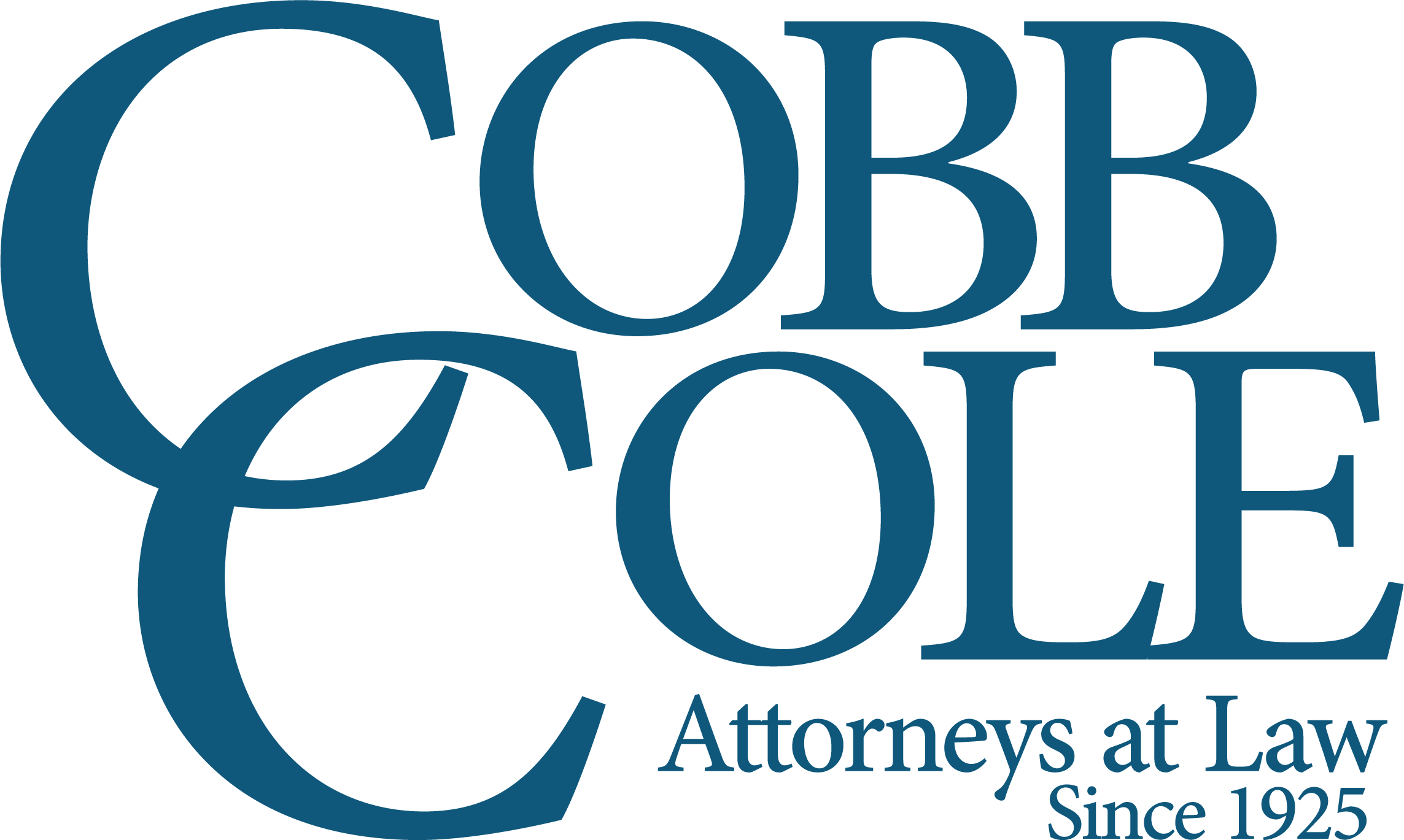Loan restructuring is a strategy used by businesses, homeowners, and real estate investors to adjust the terms of a debt obligation in ways that make repayment more manageable and sustainable. Loan restructuring can be an attractive option for borrowers facing short-term liquidity issues or long-term shifts in business models. For businesses experiencing rough patches or projects dealing with cost overruns, delays, or scope creep (the gradual, uncontrolled growth in a project’s scope of work, including additional features, tasks, or requirements, without corresponding increases in time, budget, or resources ), loan restructuring can offer an alternative to default or litigation. For many businesses and individuals, it can serve as a critical pivot point, especially in Florida’s dynamic real estate and commercial markets.
When handled properly, loan restructuring can protect assets, maintain relationships with lenders, and provide a path to future stability. At Cobb Cole, attorneys in multiple practice areas, including Corporate & Business Law and Real Estate Law groups, work together to support clients through each phase of this complex process.
Types Of Loan Restructuring
Approaches to loan restructuring typically fall into several broad categories:
- Term Extension: Extending the maturity date to reduce monthly payments. For example, a developer facing construction delays might negotiate with the lender to extend the loan term by a year, giving time to complete the project, stabilize income, and secure permanent financing under improved conditions.
- Interest Rate Reduction: Negotiating a lower interest rate to reduce financing costs. Lenders will often agree to lower interest rates in a restructuring to improve the borrower’s cash flow, reduce the risk of default, and protect the value of their loan as a performing asset.
- Principal Forbearance: Temporarily suspending repayment on the principal while continuing interest payments. This approach can give borrowers breathing room to stabilize cash flow without the immediate pressure of full debt service.
- Debt Forgiveness: Writing off part of the loan (less common, typically part of broader workouts). Lenders may use this as a last resort when they believe partial recovery is preferable to the costs and uncertainty of foreclosure or liquidation.
- Debt-for-Equity Swap: Transferring equity in a business or property to the lender in exchange for debt reduction. This can align the lender’s interests with the project’s success while reducing the borrower’s debt burden.
Each of these strategies can be used alone or in combination. For business clients, Cobb Cole’s Commercial Finance Practice has helped structure a range of modifications tailored to changing operating conditions, from post-hurricane retail declines to pandemic-related cash flow interruptions.
When Loan Restructuring Makes Sense
Loan restructuring is most effective when approached proactively. Borrowers often wait until they’re in default or litigation has begun, which may be too late with the lender’s hands now tied, however, early, proactive, action typically results in better terms. Financial institutions, especially in Florida’s competitive banking landscape, are frequently willing to negotiate if they believe the borrower is acting in good faith and has a credible plan for repayment.
Restructuring may be appropriate when:
- Cash flow issues are temporary or cyclical.
- Market values of assets have declined, affecting loan-to-value ratios.
- Regulatory or economic changes impact business models.
- Upcoming balloon payments create liquidity stress.
- Market conditions beyond the Borrower’s control have adversely ffect supply, production or revenue flows.
In contrast to litigation or foreclosure, loan modifications allow both parties to preserve relationships and reduce legal costs. Cobb Cole’s attorneys often help clients present structured financial proposals and negotiate with banks in ways that satisfy both legal and business priorities.
Legal Risks And Lender Incentives
From a legal standpoint, lenders often prefer restructuring to foreclosure because:
- It avoids expensive litigation.
- It preserves customer relationships.
- It limits reputational risk in community-based lending markets.
However, lenders also have regulatory obligations. They must show that modifications are prudent, well-documented, and aligned with underwriting standards. This creates opportunities for negotiation, but it can also result in legal pitfalls for the borrower.
Borrowers benefit from legal guidance in preparing accurate disclosures, protecting rights under existing loan documents, and avoiding unintended waivers. The Corporate & Business Law team at Cobb Cole routinely works with clients on these types of issues, ensuring that any restructuring agreement is carefully vetted for enforceability and alignment with business objectives.
Loan Restructuring For Real Estate Owners
Real estate investors and developers often carry multiple layers of financing, including acquisition loans, construction loans, and operating lines of credit. Changing one element can affect any or all of the others. Cobb Cole’s Real Estate Law and Construction & Design practices work in collaboration with our Business Law team to ensure that proposed changes to one agreement don’t inadvertently trigger default provisions elsewhere.
One common scenario involves a balloon mortgage maturing before a property is stabilized or sold. In this case, extending the term or converting the loan into amortizing payments might preserve both the property and the relationship with the lender. Similarly, when contractors face delays that affect a developer’s revenue stream, legal counsel can help restructure draw schedules and negotiate bridge terms with banks.
Collateral And Documentation Issues
When loans are restructured, collateral must often be re-appraised or re-documented. This could include updated mortgage filings, new UCC statements, or title searches. In Florida, legal and regulatory compliance can differ depending on the asset class and jurisdiction. Cobb Cole’s attorneys are versed in handling these documentation updates, ensuring compliance with both state-level real estate requirements and lender-specific mandates.
In many cases, restructuring agreements include forbearance or standstill periods during which the lender agrees not to enforce certain remedies. These arrangements must be carefully worded to protect against unintentional admissions of default or waivers of borrower rights. All of these considerations require sound counsel and careful legal drafting with help from attorneys at Cobb Cole, a full-service law Firm.
Workouts vs Bankruptcy
Loan workouts and restructuring differ significantly from bankruptcy. While bankruptcy is court-supervised and governed by a strict statutory framework, workouts are private negotiations between the borrower and the lender. Thus, workouts allow for more flexible solutions tailored to the specific circumstances of the parties involved.
In many cases, a well-structured loan workout can avoid the need for bankruptcy entirely. In others, restructuring can preserve enough cash flow to make a formal reorganization viable. Cobb Cole’s attorneys assess these options based on financial models, asset protection goals, and risk profiles.
For businesses, especially those at transitional moments, loan restructuring can complement other legal strategies. Proactive legal guidance early in the process can prevent more costly problems later.
Role Of Tax And Accounting Professionals In Loan Restructuring
Loan restructuring often has tax implications. For instance, forgiven debt may be considered taxable income under federal law. Similarly, changes in payment schedules can affect expense recognition and tax planning.
Cobb Cole has access to tax advisors, accountants, and internal finance teams, as well as the Firm’s own excellent Tax Law attorneys, to ensure that legal strategies are aligned with fiscal goals. This collaboration is particularly valuable when restructuring involves multiple lenders, layered financing, or large-scale real estate portfolios.
How Cobb Cole Helps During Loan Restructuring
Cobb Cole is a full-service law Firm based in Florida with a history of guiding clients through financial challenges, commercial transitions, and property restructuring. The Firm’s attorneys routinely collaborate across disciplines to manage the legal, business, and documentation aspects of loan modification. Whether negotiating new payment schedules, restructuring real estate-backed loans, or resolving lender disputes, Cobb Cole brings together professionals in Corporate & Business Law, Real Estate Law, and commercial finance.
Clients benefit from lawyers who understand not only the law, but also the local banking environment, regulatory frameworks, and market dynamics. This combination of insight and coordination can mean the difference between restructuring that works and one that creates more issues down the road.
For Your Reference
Florida does not have a distinct restructuring statute for commercial loans, but common legal principles governing contracts, secured transactions (UCC), and property law will apply. Parties should also consider federal laws concerning debt forgiveness and bank regulatory guidance on modification standards.

